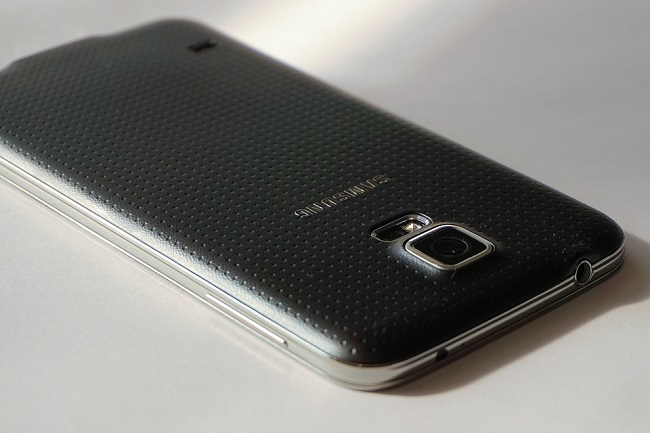Reports of device batteries catching fire may harm the brand’s reputation but suppliers will feel the financial pinch.
Samsung Electronics has announced a massive Galaxy Note 7 recall following a growing number of reports of exploding batteries. The devices have been catching fire while they were recharging. This could mean Samsung’s reputation may take a hard hit. However, the brunt of the financial impact could end up being directed at the company’s suppliers.
Samsung’s response to the rechargeable battery problems with the Note 7 has been a rapid one.
When the Galaxy Note 7 recall was announced, Samsung said it would provide a free battery replacement or after/service. That said, it has decided not to offer customers a refund. This has been interpreted as a strategy to reduce the impact of the incident on the brand. It has also been seen as a rather inconvenient offer for the customer.
 The Note 7’s official launch was on August 19 in Korea. Media there reported the sale of over 400,000 units within the country. J.P. Morgan has estimated that there will also be a delay in the shipment of up to two million units, assuming the recall affects all the devices that have been made.
The Note 7’s official launch was on August 19 in Korea. Media there reported the sale of over 400,000 units within the country. J.P. Morgan has estimated that there will also be a delay in the shipment of up to two million units, assuming the recall affects all the devices that have been made.
The Galaxy Note 7 recall may also play a large role in deflating the current market response.
J.P. Morgan’s report said “This could also cool down heated market response, but we do not expect a material impact on sell-through in the next three to six months.”
That said, the analysts have recently reduced the level of their downside risk expectations. They have predicted that they might drop from the level maintained at present to approximately 13 million units during the third and fourth quarters of this year. The J.P. Morgan analysts explained “The company plans to correct the recall-related supply bottleneck within next couple of weeks and we expect a solid sell-in/sell-through trend from later part of this quarter.”
It’s important to point out that the incidents leading to the Galaxy Note 7 occurred only during the wired charging. The wireless charging feature has not been associated with the fires.
Recent research shows that this generation uses their devices even when in real world shops.
According to the results of a new study, 84 percent of millennials are using in-store mobile commerce. This means that despite the fact that they’re shopping in a bricks and mortar store, they’re also using their smartphones. That statistic only underscores the importance of retail mobile features.
The “mobile generation” is heavily influenced by the use of their smartphones while in store.
That said, even though many millennials are shopping using in-store mobile commerce, retailers shouldn’t feel threatened. This, according to Alliance Data, the firm behind the study. Alliance Data says this is an opportunity for retailers to benefit. If merchants embrace the use of mobile shopping by customers while they are in-store, they may be able to better guide the experience. This could provide them with a significant advantage.
The majority of millennials use in-store mobile commerce to find cheaper or easier ways of buying.
 Knowing this can mean that retailers may be able to use the mobile shopping experience to prove they’re the best option. The survey data showed that one in three (34 percent) of millennials use their mobile devices to check product information. More than one in five (22 percent) use their smartphones to talk to friends about a product or service they’re considering.
Knowing this can mean that retailers may be able to use the mobile shopping experience to prove they’re the best option. The survey data showed that one in three (34 percent) of millennials use their mobile devices to check product information. More than one in five (22 percent) use their smartphones to talk to friends about a product or service they’re considering.
“Retailers need to embrace mobile as part of the path to purchase,” said Alliance Data senior analyst of strategic insights group, Tom Colven. When a shopper is using a smartphone for shopping purposes while in-store, it is likely that they are trying to determine whether the store’s price for a certain product is a good one and what their peers think of the purchase. “Any brick-and-mortar retailers that do not embrace mobile at this point and latch on to key moments…risk being left behind by competitors,” said Colven.
The role played by smartphones doesn’t stop with in-store mobile commerce. After a purchases is made, the influence expands. The research showed 16 percent share that they have made the purchase over social media. Shopping experience details and unboxing information is also commonly shared.
 The Note 7’s official launch was on August 19 in Korea. Media there reported the sale of over 400,000 units within the country. J.P. Morgan has estimated that there will also be a delay in the shipment of up to two million units, assuming the recall affects all the devices that have been made.
The Note 7’s official launch was on August 19 in Korea. Media there reported the sale of over 400,000 units within the country. J.P. Morgan has estimated that there will also be a delay in the shipment of up to two million units, assuming the recall affects all the devices that have been made.
 Knowing this can mean that retailers may be able to use the mobile shopping experience to prove they’re the best option. The survey data showed that one in three (34 percent) of millennials use their mobile devices to check product information. More than one in five (22 percent) use
Knowing this can mean that retailers may be able to use the mobile shopping experience to prove they’re the best option. The survey data showed that one in three (34 percent) of millennials use their mobile devices to check product information. More than one in five (22 percent) use 